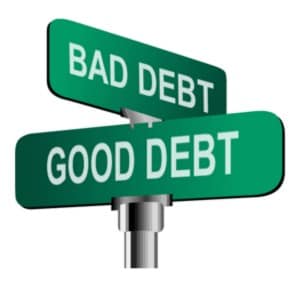 Credit card debt. There’s a lot of discussion about it in the news these days and the news is all bad; but the reality is that there is good debt and bad debt. As you will read, debt, including credit card debt is more than a 4-letter word. However, no one is denying that debt is a serious issue for many Canadians. According to the Canadian Institute of Chartered Accountants surveys conducted in December and June, 2012:
Credit card debt. There’s a lot of discussion about it in the news these days and the news is all bad; but the reality is that there is good debt and bad debt. As you will read, debt, including credit card debt is more than a 4-letter word. However, no one is denying that debt is a serious issue for many Canadians. According to the Canadian Institute of Chartered Accountants surveys conducted in December and June, 2012:
- 50% of Canadians think reducing debt is a high priority
- 48% of Canadians would have difficulty making mortgage payments if interest rates rose significantly
- 43% of Canadians carried over a balance on their credit cards
- 17% of Canadians borrowed to cover day-to-day living expenses
According to Statistics Canada, between 1984 and 2009, household debt (which includes credit card debt) in Canada more than doubled from $46,000 (in 2009 dollars) to $110,000. In February 2011 the Vanier Institute of the Family reported that the average Canadian family had hit $100,000. If there is such a thing as good debt and bad debt, what’s the difference? The distinction is based on the purpose for which it is taken on. Good debt can be defined as anything that builds your assets or increases the potential for you to earn more money. Bad debt is typically incurred to purchase things that have no value or quickly lose their value and usually carries a very high interest rate – which more often than not is found in credit card debt.
Some examples of good debt:
- Mortgage
- Real estate
- Student loans from the provincial or federal government
- Investment loans
Some examples of bad debt:
- Credit card debt
- Car loans (if it isn’t to get you to and from work, but rather a “toy”)
- Lines of credit
- Other loans
If you are having trouble paying the monthly bills, and have out of control credit card debt, it really doesn’t matter if you have good debt or bad debt; it’s time to see a professional trustee. Ira Smith Trustee & Receiver Inc. will evaluate your situation and help you to arrive at the best possible solution for your problems, whether that solution are bankruptcy alternatives like credit counselling, debt consolidation or a consumer proposal or bankruptcy. Starting Over, Starting Now you can be debt free with the help of a professional, licensed trustee in bankruptcy. You can even do some advance study with our bankruptcy faqs. Contact us today.
